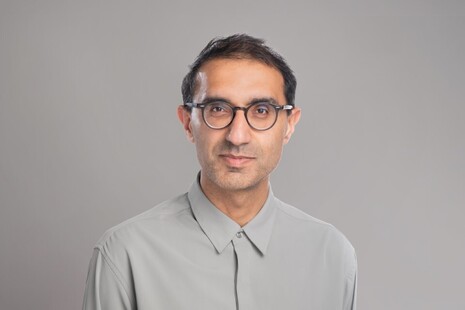Research from regulator Ofcom – which is responsible for online safety – finds that exposure is particularly prevalent among children and women, and includes scams, as well as sexual and political content
A large proportion of UK citizens are being exposed to online deepfakes, with children being especially impacted, Ofcom research has found.
By comparing results from two YouGov surveys, the research revealed differences between those aged eight to 15 and those aged 16 and upwards. It showed that, since the beginning of the year, half of those in the younger age group had seen at least one deepfake compared to 43% of over-16s.
Meanwhile, females in both age groups reported a higher exposure, with a difference of more than 15 percentage in the adult group. However children were found to be more confident in their ability to detect deepfakes, with their reported levels being 11% higher than the adult cohort.
Social media apps and video posting platforms, like YouTube, ranked as the top source of deepfake content in both surveys.
Related content
- Government extends use of digital simulation for ‘information incident’ crisis training
- Government comms unit taps into tech tool to track Russian social disinformation
- EXCL: Government buys £700k software to monitor death threats against ‘high-profile individuals’ involved in vaccine rollout
The most common type of content 8-15-year-olds say they have encountered was a funny or satirical deepfake, followed by scam adverts.
Deepfakes of a politician or a political event ranked the highest for adults. In addition, the adult survey measured the prevalence of sexual deepfakes. Almost 15% reported having seen one since the beginning of the year, with two in 10 of these admitting it had been of an underaged person.
The results come after research by the University of Edinburgh revealed more than 300 million people across the world were victims of online sex abuse over the last year.
Representatives for government’s controversial National Security Online Information Team – formerly known as the Counter Disinformation Unit – recently picked out deepfakes as one of three core areas of focus, alongside threats posed by hostile states and the potential undermining of democratic processes.
In the run up to the recent general election, as part of official security guidelines, the government published dedicated guidelines on the risks posed to the process by deepfakes and other issues created by generative artificial intelligence.

This story originally appeared on PublicTechnology sister publication Holyrood






Fantastic piece! Really enjoyed going through it. Thanks for sharing. This kind of content stands out. Make sure to visit the incredible post linked here. If you’re into Kanye West’s work, this page is highly recommended. You’ll find some great ideas. Hoping for more content of this caliber from you in the future! https://www.tumblr.com/kanye-west-posters/751574461874094080/kanye-west-posters
I am continually looking online for ideas that can benefit me. Thanks!
It’s my opinion that a foreclosed can have a major effect on the client’s life. House foreclosures can have a 6 to several years negative impact on a client’s credit report. The borrower who may have applied for a mortgage or any loans for that matter, knows that your worse credit rating is, the more tough it is to have a decent personal loan. In addition, it may affect a new borrower’s power to find a really good place to lease or rent, if that will become the alternative real estate solution. Interesting blog post.
Thanks for revealing your ideas on this blog. Additionally, a delusion regarding the financial institutions intentions when talking about foreclosures is that the lender will not take my repayments. There is a degree of time the bank can take payments here and there. If you are too deep within the hole, they should commonly require that you pay the actual payment 100 . However, that doesn’t mean that they will have any sort of repayments at all. In the event you and the bank can manage to work some thing out, the actual foreclosure procedure may halt. However, in the event you continue to skip payments in the new plan, the foreclosed process can just pick up where it left off.
amazing blog! since i checked out yours, care to checkout mine? its all about kanye west posters https://sneakerxp.com/communications-mobile-phones/everyone-loves-kanye-west-poster/
I really enjoy the blog article.Thanks Again. Fantastic.
Mexican Easy Pharm: Mexican Easy Pharm – mexican border pharmacies shipping to usa
reputable mexican pharmacies online https://mexicaneasypharm.shop/# Mexican Easy Pharm
mexican mail order pharmacies
https://predpharm.com/# prednisone steroids
buy prednisone 40 mg
https://kamapharm.shop/# Kama Pharm
prednisone 20mg online pharmacy
http://predpharm.com/# prednisone 20 mg in india
prednisone price canada
https://semapharm24.shop/# Sema Pharm 24
prednisone buy cheap
http://cytpharm.com/# buy cytotec over the counter
prednisone 54
https://predpharm.shop/# 60 mg prednisone daily
prednisone
http://cytpharm.com/# buy cytotec online
50mg prednisone tablet
http://semapharm24.com/# cheap semaglutide pills
prednisone canada prices
https://dappharm.com/# dapoxetine online
30mg prednisone
One thing is that often one of the most prevalent incentives for applying your card is a cash-back or maybe rebate supply. Generally, you’ll get 1-5 back upon various expenses. Depending on the credit cards, you may get 1 returning on most acquisitions, and 5 again on expenses made on convenience stores, filling stations, grocery stores as well as ‘member merchants’.
https://predpharm.com/# PredPharm
prednisone 30 mg tablet
https://semapharm24.com/# semaglutide tablets price
buy prednisone 10mg
https://kamapharm.com/# Kama Pharm
cost of prednisone
https://semapharm24.com/# generic rybelsus tabs
purchase prednisone from india
https://semapharm24.shop/# rybelsus semaglutide tablets
buy prednisone no prescription
https://farmabrufen.shop/# Ibuprofene 600 prezzo senza ricetta
farmaci senza ricetta elenco
http://farmabrufen.com/# BRUFEN 600 acquisto online
comprare farmaci online con ricetta
https://farmaprodotti.com/# farmacia online piГ№ conveniente
Farmacie online sicure
https://farmabrufen.shop/# BRUFEN 600 acquisto online
migliori farmacie online 2024
https://farmatadalitaly.com/# farmacia online
Farmacia online piГ№ conveniente
farmaci senza ricetta elenco: Tadalafil generico migliore – comprare farmaci online all’estero
Promotions are advertised through social media channels.: taya365 – taya365
Casino visits are a popular tourist attraction. http://taya365.art/# Many casinos host charity events and fundraisers.
Casino promotions draw in new players frequently.: phmacao – phmacao casino
win chile win chile Los casinos son lugares de reuniГіn social.
https://taya365.art/# Players enjoy a variety of table games.
The casino industry supports local economies significantly.
Some casinos feature themed gaming areas.: phmacao com login – phmacao
Slot machines feature various exciting themes. http://phtaya.tech/# The casino experience is memorable and unique.
Casino promotions draw in new players frequently.: taya777.icu – taya777
Hay reglas especГficas para cada juego.: winchile – winchile casino
Casino visits are a popular tourist attraction. http://winchile.pro/# La Г©tica del juego es esencial.
taya777 login taya777 Players enjoy a variety of table games.
The ambiance is designed to excite players.: taya777.icu – taya777 register login
Many casinos host charity events and fundraisers.: phmacao casino – phmacao com login
Manila is home to many large casinos. http://taya365.art/# Many casinos offer luxurious amenities and services.
Many casinos have beautiful ocean views.: taya777 login – taya777
taya777 taya777 app A variety of gaming options cater to everyone.
The ambiance is designed to excite players.: phmacao casino – phmacao com login
The gaming floors are always bustling with excitement. https://phtaya.tech/# Game rules can vary between casinos.
Players enjoy a variety of table games.: taya777 app – taya777.icu
The ambiance is designed to excite players.: taya365 com login – taya365.art
Poker rooms host exciting tournaments regularly. http://taya777.icu/# Poker rooms host exciting tournaments regularly.
Loyalty programs reward regular customers generously.: taya365 – taya365.art
phmacao com login phmacao com login Many casinos have beautiful ocean views.
The casino experience is memorable and unique.: phtaya login – phtaya login
The Philippines offers a rich gaming culture. http://taya777.icu/# Many casinos host charity events and fundraisers.
Las tragamonedas ofrecen grandes premios.: win chile – winchile casino
Most casinos offer convenient transportation options.: taya365 – taya365
https://phtaya.tech/# Live music events often accompany gaming nights.
Some casinos have luxurious spa facilities.
The casino atmosphere is thrilling and energetic. https://winchile.pro/# La mГєsica acompaГ±a la experiencia de juego.
Players must be at least 21 years old.: taya777.icu – taya777 app
phmacao com phmacao The casino atmosphere is thrilling and energetic.
A variety of gaming options cater to everyone.: taya777.icu – taya777 login
Casinos offer delicious dining options on-site. http://taya777.icu/# Security measures ensure a safe environment.
Los casinos garantizan una experiencia de calidad.: winchile casino – win chile